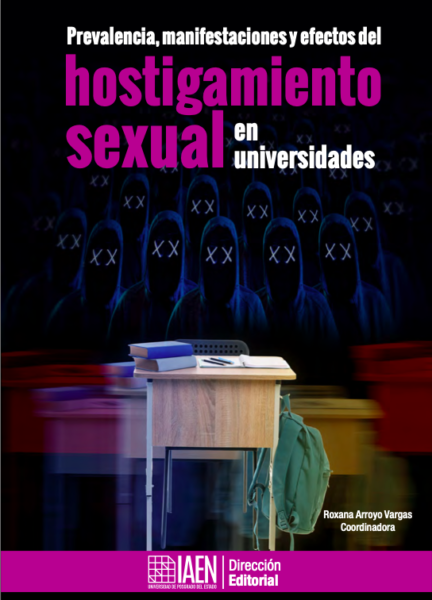Uncovering cracks in the "ivory tower": the phenomenon of sexual harassment at the Pontifical Catholic University of Peru
- Patricia Ruiz Bravo
- Julián Mezarina
 Prologue of the book
Prologue of the book
Within university environments, sexual harassment is a form of violence and discrimination that affects students in general, but especially impacts women. It is a violation of human rights that alters the possibility of the effective enjoyment of study. International and regional legally binding instruments seek to counteract the threats of harassment; however, serious deficiencies persist in the effective exercise of this right. This study is the result of three years of work - in universities in the region plus one in Germany - investigating this problem in higher education institutions. A diverse and interdisciplinary team applied an innovative methodology that shows how this problem manifests itself, prevails and affects people in the university community. The proposed approach deepens the understanding of the issue and provides lines of public policy towards adequate, fair and lasting decisions.
Abstract
The study Uncovering cracks in the "ivory tower": the phenomenon of sexual harassment at the Pontifical Catholic University of Peruis part of a comparative study carried out in parallel at the Universidad Nacional Autónoma de México (UNAM), the Universidad Nacional de Colombia (Bogotá campus), the Instituto de Altos Estudios de Posgrado del Estado de Ecuador, and the Universidad Nacional de Costa Rica. The methodology consisted of applying a survey to a sample of undergraduate students throughout the PUCP. Among the findings, it was identified that the prevalence of sexual harassment is high and that women are, as in other cases, the main victims, while their male peers are the main perpetrators. It was also found that there are large differences in the responses when students are asked whether they have suffered sexual harassment directly or through specific manifestations. This may be associated with practices of sexual harassment naturalized by the respondents. In addition, students reported feelings of anger, shame and fear, followed by psychological, academic and social complications as a result of sexual harassment. Despite this, most do not report cases of sexual harassment for various reasons, including not considering the acts as serious, as well as fear of not being believed. Among the recommendations is the urgency of having prevention mechanisms that challenge the naturalization of sexual harassment practices.
Downloads
Book: Prevalence, manifestations and effects of sexual harassment in universities